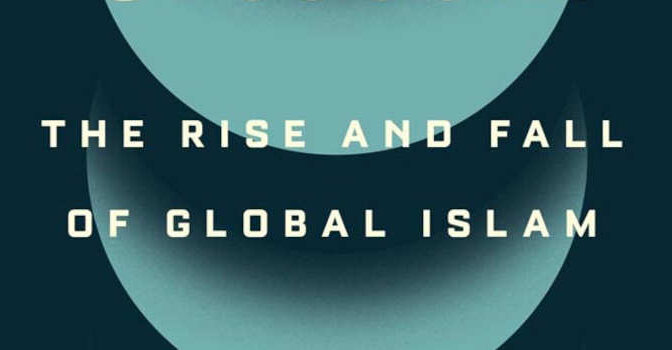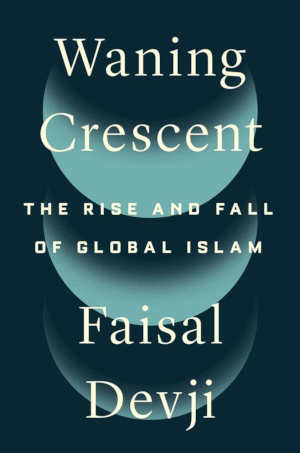Faisal Devji Waning Crescent review, recensie en informatie boek over de opkomst en ondergang van de wereldwijde islam. Op 26 augustus 2026 verschijnt bij Yale University Press het nieuwe boek van Faisal Devji de in Islam gespecialiseerde historicus en Beit Hoogleraar Wereld- en Imperiale Geschiedenis en fellow van het Balliol College, Oxford. Er is geen Nederlandse vertaling van het boek verkrijgbaar.
Faisal Devji Waning Crescent review en recensie
- “Faisal Devji has emerged as the preeminent historian of global religion in its most surprising, intractable, and understudied aspects. His newest book is no less original in its stunning and disarming approach. Waning Crescent forms essential reading for a wide audience that will appreciate its erudition and for those rare acute political observers rightly concerned with the present spell cast by our more oppressing spiritual pasts but also intrigued by the normative resources that may yet be found there.” (Hent de Vries, Dutch Philospoher and professor at New York University)
- “Every book Faisal Devji writes is important. This biography of Islam as an historical actor is daring, learned, occasionally outrageous, invariably revelatory. Here there is no deference to the Western gaze. Devji gives us not only a study of Islam, but a study of modernity that shifts the world on its axis.” (Anne Norton, University of Pennsylvania)
Waning Crescent
The Rise and Fall of Global Islam
- Auteur: Faisal Devji (Engeland)
- Soort boek: geschiedenis van de Islam
- Taal: Engels
- Uitgever: Yale University Press
- Verschijnt: 26 augustus 2025
- Omvang: 280 pagina’s
- Uitgave: gebonden boek / ebook
- Prijs: $ 30,00
- Boek bestellen bij: Amazon / Bol / Libris
Flaptekst van het boek van Faisal Devji over de opkomst en ondergang van de wereldwijde islam
A compelling examination of the rise of Islam as a global historical actor.
Until the nineteenth century, Islam was variously understood as a set of beliefs and practices. But after Muslims began to see their faith as an historical actor on the world stage, they needed to narrate Islam’s birth anew as well as to imagine its possible death. Faisal Devji argues that this change, sparked by the crisis of Muslim sovereignty in the age of European empire, provided a way of thinking about agency in a global context: an Islam liberated from the authority of kings and clerics had the potential to represent the human race itself as a newly empirical reality.
Ordinary Muslims, now recognized as the privileged representatives of Islam, were freed from traditional forms of Islamic authority. However, their conception of Islam as an impersonal actor in history meant that it could not be defined in either religious or political terms. Its existence as a civilizational and later ideological subject also deprived figures like God and the Prophet of their theological subjectivities while robbing the Muslim community of its political agency. Devji illuminates this history and explores its ramifications for the contemporary Muslim world.
Faisal Devji was born in 1964 in Dar es Salaam, Tanzania. He is Beit Professor of Global and Imperial History and Fellow of Balliol College, Oxford. He is the author of The Impossible Indian: Gandhi and the Temptation of Violence and Muslim Zion: Pakistan as a Political Idea.

